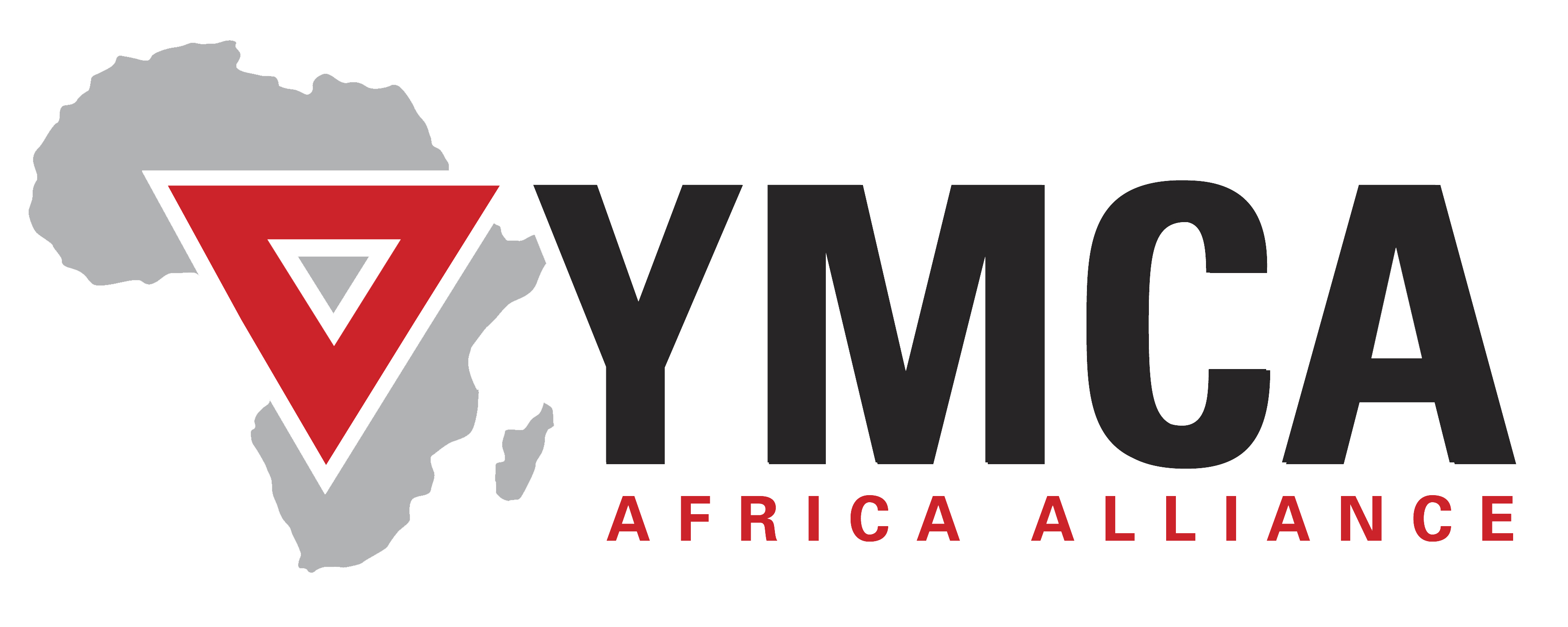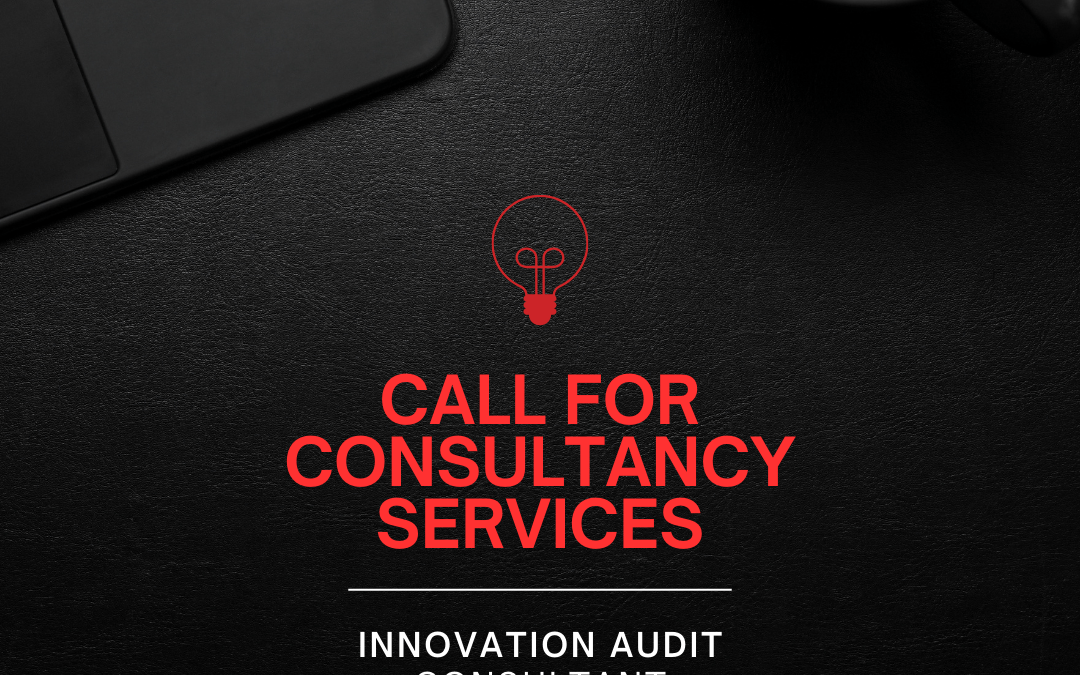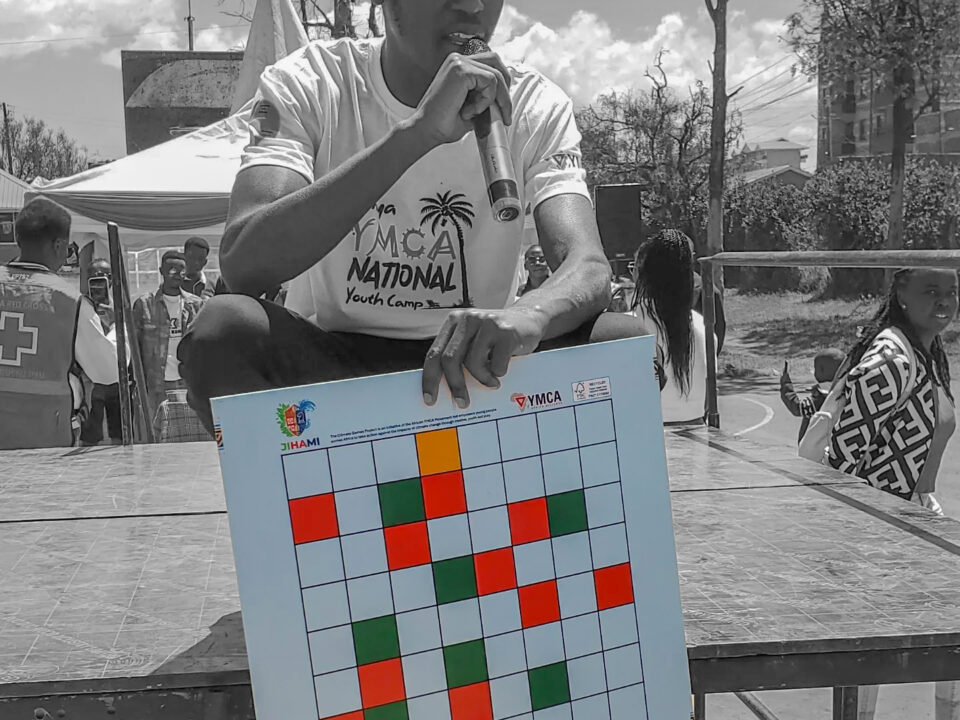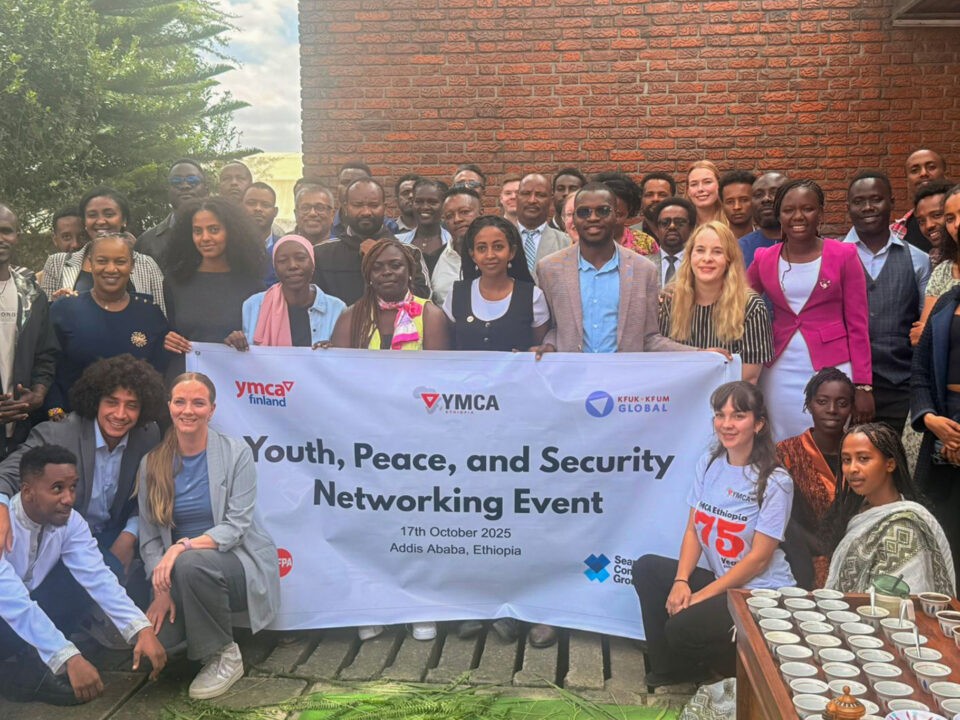Call for Consultants: Join the Innovation Journey with AAYMCA!

The Africa Renaissance Hub Office Renovation
13/02/2024
MY COP28 EXPERIENCE
21/02/2024Are you a seasoned consultant with a passion for driving innovation and youth empowerment in Africa? AAYMCA invites qualified individuals to collaborate on our groundbreaking Innovation Audit TOR.
We are seeking consultants with expertise in Human-Centered Design, Innovation Management, and Youth-Focused Programming to contribute to this transformative initiative. Your insights and experience will help shape the future of the YMCA movement in Africa and beyond.
Explore the details of the Innovation Audit TOR and learn how you can be part of this exciting journey. Submit your Proposals for Engagement (PFE) to aaymcas@africaymca.org by February 29th, 2024.
Join us as we empower young people for the African Renaissance through innovation, research, and design. Together, let's create positive change and impact in our communities!
The Africa Renaissance Hub @ AAYMCA -Innovation, Research, Design
Innovation Audit TOR
Terms of Reference
About us
The Africa Alliance of Young Men Christian Associations (AAYMCA) is the umbrella body of 22 chartered Country based YMCAs, hereafter referred to as National Movements (NM). The mandate and role of the AAYMCA in relation to its membership is two-fold – as a Secretariat and as a Technical House. The role of the AAYMCA as a Technical House is structured along the following:
a) To ensure strategic alignment with the shared vision of ‘Empowering Young People for the African Renaissance’. A key part of this alignment is the foundational youth empowerment model, ‘From Subject to Citizen (S2C)’, which empowers youth to become active in transforming their communities.
b) To ensure Programmatic excellence: In 2016, the AAYMCA led the development of the Y3.0 strategy for the future of the African YMCA Movement. Under the Y3.0 strategy, the YMCA launched the Powerspace1.. A key cornerstone to this is the increased organizational capacity for strategic innovation, with a focus on Human Centered Design (HCD) and related methodologies.
1. Human Centered Design & the AAYMCA
1 The Powerspace is a 4 step iterative youth empowerment methodology involving attracting youth through engaging activities, facilitating self-awareness raising, building skills of participants and providing participants with linkage to opportunities. The Powerspace was co-created by young members of the YMCA and is in the process of diffusion into the Movement
2 Game design is the process of creating and shaping the mechanics, systems, and rules of a game. Games can be created for entertainment, education, exercise, or experimental purposes. Gamification is the addition of game mechanics into nongame environments, like a website, online community, learning management system etc to increase participation. Gamification plays on the psychology that drives human engagement and its goal is to improve engagement with consumers, employees and partners to inspire collaborate, share and interact.
Between 2019 and 2021, the Africa Alliance of YMCAs implemented a 2-country research project in Kenya and Zambia titled “Sex Manenoz” to test the fecundity of using Design Thinking, Game Design and Gamification2 to increase access to Sexual and Reproductive Health Rights and Services.
From the research project, the learning was that using both game design and Gamification made learning and access to information informative and exciting, mainly due to resultant interactivity. During the course of the prototyping phase of the project, it was noted that role-play and competitive elements add an immersive angle, which, if set up well, can enhance retention of information in a new, fun and interactive way. Findings from the prototyping and testing phase indicate that games were a vital tool in enhancing learning experiences for users as it made it easy for them to retain information that they got during the respective activities. It also created the opportunity to expand the prototypes with additional design elements on the go to compliment new learnings and knowledge-sharing approaches. Due to its practical nature of user-engagement, it additionally is easy to monitor and evaluate impact through the level of engagement and knowledge retention.
Secondly, between 2021 and 2023, the AAYMCA implemented the Powerspace methodology in 5 National Movements. The program was designed to provide opportunities for the empowerment for young people at in conflict with the Law using Design Thinking as a core skill provided to Youth and staff in the Movement. Through the project, AAYMCA established the foundations for the Africa Renaissance Hub, promoted Learning, Knowledge Management and Page 3 of 5
Innovation through activities that guided reflection, learning, evaluation and sharing impact in relation to youth in conflict with the law.
The AAYMCA also empowered the implementing YMCA movement staff and volunteers to better listen, inspire, advocate, and influence for systems change at local, National and continental levels.
Value Proposition
Recently, the organization has developed a Value proposition statement in relation to the National Movements. The value offer to the National Movements is that AAYMCA will contribute to the African Renaissance by building the Capacities of National Movements for Impactful Youth Empowerment in the continent. AAYMCAs will provide evidence-based customized solutions through co-creation, research, co-design and innovation approaches that are applicable to:
a) Youth-based Intervention Models. These Models will primarily be based on the application of the PowerSpace methodology along 5 thematic Outcome areas: Youth Justice, Civic Action, Economic Renaissance, Transformative Masculinity and Sustainable Planet
b) Improved competencies for programme implementation and Communication and Knowledge Management.
c) Movement Sustainability, Effective Governance and Delivery Models.
1. The Africa Renaissance Hub
The Africa Renaissance Hub (ARH) is a vehicle for the redefinition of the Technical House role of the Africa Alliance of YMCAs and is based on the YMCA 3.0 Game plan strategy of the AAYMCA as well as the Vision 2030 strategy of the World YMCA. The ARH is the institutional Learning and Innovation center piece for knowledge Generation and Management, serving all the existing and new National Movements, constantly attempting to answer to the following question:
Going into 2026, how might we co-create a powerful, impactful YMCA ecosystem with influence and that is providing space for youth?
The idea of the ARH comes from the thinking of Prof. Vijay Govindarajan’s The Three-box Solution. The Three-Box Solution is a simple framework that recognizes all three competing challenges managers face when leading innovation. It is a powerful guide for aligning organizations and teams on the critical but competing activities required to simultaneously create a new business while optimizing the current one. In the three boxes, companies must do the following:
• Box 1—Manage the present core business at peak efficiency and profitability.
• Box 2—Escape the traps of the past by identifying and divesting businesses and abandoning practices, ideas, and attitudes that have lost relevance in a changed environment.
• Box 3—Generate breakthrough ideas and convert them into new products and businesses.
The ARH is currently conceived as a creature of Box 3 with the following main objectives: Page 4 of 5
1. To facilitate product and service development through Innovative programme Design and prototyping
2. To adequately track the scope of impact of the YMCA on the client/customer: The overall result of the YMCA engagement with Africa, the eventual difference that the movement makes by being present and active- this extends to the youth and to systems that relate to the youth in general. This will also involve development of tools to facilitate the process.
3. To identify and satisfy innovation capacity needs for staff at the AAYMCA and National Movements
2. Proposed Methodology:
The Hub will implement Design Thinking as its key methodology. Design thinking will entail the development and implementation of products (projects, innovations and services) centered on Design challenges. The challenges will be designed based on the broader strokes of the African Youth Scenarios and Agenda 2063 although provisions will be made to capture emerging factors and situations. In this regard, as a foundation, the Hub strategy will refer the work already completed on the African Youth Scenarios, the Africa youth Fact book and other research documentation of the AAYMCA including under the Transformative Masculinity, Youth Justice Report framework (including the Persona Profiles and 3I Workshop reports), the Building Bridges report of the Interfaith Youth project, and others . The Hub intention is also to contribute to increase in the size of this repository.
The ARH will also be the lead agent for the Prototyping Process – This is the design, development and implementation of concept projects to be implemented at country or branch level in. It shall entail testing different components and new ideas that will fit in the overall and all NMs and local associations shall be engaged in initiation at different steps in the process.
3. The Brief: Innovation Audit
In order to actualize the ARH and set its foundations up well, the AAYMCA would like to conduct an Innovation audit on itself, as well as a select number of YMCA National Movements. The Innovation audit will assess the AAYMCA and its Culture, Capability, Strategy, processes, Products and Implementation in respect to ISO International Standards. ISO Innovation standards support sustainable industrialization through internationally agreed specifications that meet quality, safety and sustainability requirements. The result of the audit will enable the AAYMCA to complete the setting up of the ARH and to determine the capacities needed, desirable organizational policies and policy frameworks as well as the processes and mindset shifts that would enable to successful setting up of the ARH.
The audit should assist the AAYMCA to identify gaps in its capacity for Innovation, and also assess the organization’s Management skills including the following: Collaboration, Ideation, Implementation and Value Creation. The assessment will also enable to AAYMCA in setting up of the ARH, to identify appropriate Key Innovation Management tools to manage the flow of ideas from initial concept generation to final value realization or commercial exploitation. The audit will also serve as a Baseline in the implementation of a 5-country Climate change focused project that includes use of Game technology and Design Thinking. Page 5 of 5
4. The Consultant
In order to facilitate the Innovation audit, AAYMCA would like to engage consultants who have experience in managing Innovation capacity audits and who have a working knowledge of the existing ISO International Standards for Innovation. Specifically, the consultant should:
1. Have experience in Human Centered Approaches to Institutional Capacity Building (With specific reference to Design Thinking for Strategic Innovation)
2. Have experience in analyzing and/or monitoring the implementation of Innovation Hubs, Accelerator Hubs and similar initiatives
3. Have demonstrable, working knowledge of ISO Certification for innovation
4. Have experience managing or implementing Innovation specific projects for Non- profits or Non-Governmental Organizations
5. Have experience with continental organizations/ regional institutions/ cross-border organizations, especially in relation to innovation capacity building
6. Have at least 5 (five) years’ experience with youth – focused programming, either at the implementation level or consulting for institutions focused on such
Qualified and interested persons or individuals are asked to provide Proposals for engagement (PFE) detailing the following:
1. Details of proposed work structure
2. Evidence of similar work
3. Curriculum Vitae of lead consultant and list of assisting consultants (if any)
4. Proposed budget (Please note that the task will not include travel outside of Kenya so no such expenses will be expected)
5. Proposed workplan
6. Evidence of experience working with and/or knowledge of the details of The ISO 56000 Series for Innovation Management
The PFE documents, titled “Innovation Audit 2024” should reach the AAYMCA on or before February 29th 2024 via the email aaymcas@africaymca.org and should be addressed to, The Programme Executive, Africa Alliance of YMCAs.




